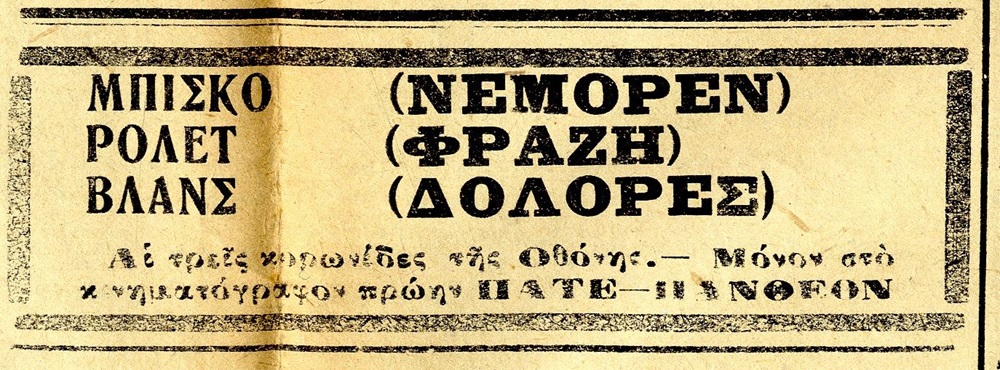
Myrto Karageorgi-Gyftodimou
Department of Archive Processing
General State Archives, Central Service
Supervisors go to the theater. Artistic movement in Smyrna in 1922: Snapshots from the archive of the Directorate of Finance of the High Commission of Smyrna

Document 1. Column of public spectacles of the newspaper “Kosmos”, 13/26 April 1922. Archives of the Financial Directorate of the High Commission in Smyrna, General State Archives-Central Service
Where would you go if you wanted to attend a theatrical performance in Smyrna on April 26, 1922? The answer is given by the morning newspaper Kosmos: Nezerakia presented at the Kyveli Theatre the “brilliant revue The Record in 3 acts with 25 songs”, while Pallas cinema screened again “Pariah of Love”, a French film by Paul Garbagni with the well-known Smyrna actor Marios Palaiologos.
But anyone who wanted to watch the three “crowns of the screen”, Biscoe, Rolette and Vlanche, had to arm themselves with patience, since the Pantheon cinema foreshadowed proper madness ahead of the screening of the film “The Three Sentimentalists”.
The local newspapers of Smyrna constantly presented the artistic movement of the city, in a continuous upward course since the construction of its first major theater, the Euterpe Theater in 1841. The halls of the city were filled with Italian and French troupes; for example, the performances of the dramatic troupe Paris Tournai in 1920 at the Sporting Theatre. The children’s troupe of Piccoli appeared in 1911 at the newly built Smyrna Theatre, “one of the most beautiful and elegant theatres in the Balkans and the East”, as Christos Solomonides describes it in his play The Theatre in Smyrna 1657-1922. The venue was inaugurated by the Kotopouli-Lepeniotis troupe, one of the Athenian troupes that included the city in their tours. The company of Kyveli Hadrianou, in fact, gave performances with such frequency in Smyrna that the Sporting Club Theater was renamed Kyveli Theater in honor of the actress.

The audience therefore had many options, but supported with great enthusiasm the efforts of domestic theatrical groups, amateur and professional. The troupes selected works from the international repertoire, staged ancient classics, even opera or operetta. Operetta Afentaki, for example, in 1919 staged “La Traviata” with the Greek-Russian soprano Champagnika. However, it was not limited to foreign repertoire, since during the First World War and the blockade many remarkable playwrights from Asia Minor had appeared. One of them, the inspector Sylvios (born Andreas Papadopoulos), saw his “Smyrneikos Parrot” so successful that it was performed continuously for three months at the Kraimer Theatre in 1916.
The artistic activity continued during the years of the Greek occupation, as evidenced by the situation of the Directorate of Finance of the High Commission of Smyrna, where we can see how much public spectacle tax was paid by theaters and cinemas of the city in June 1922
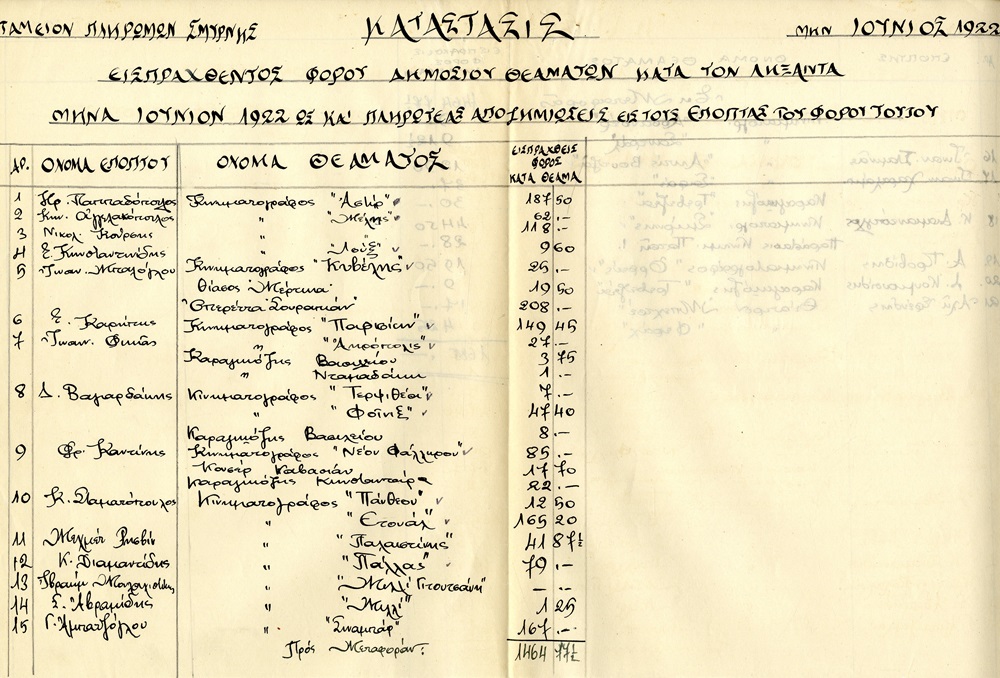
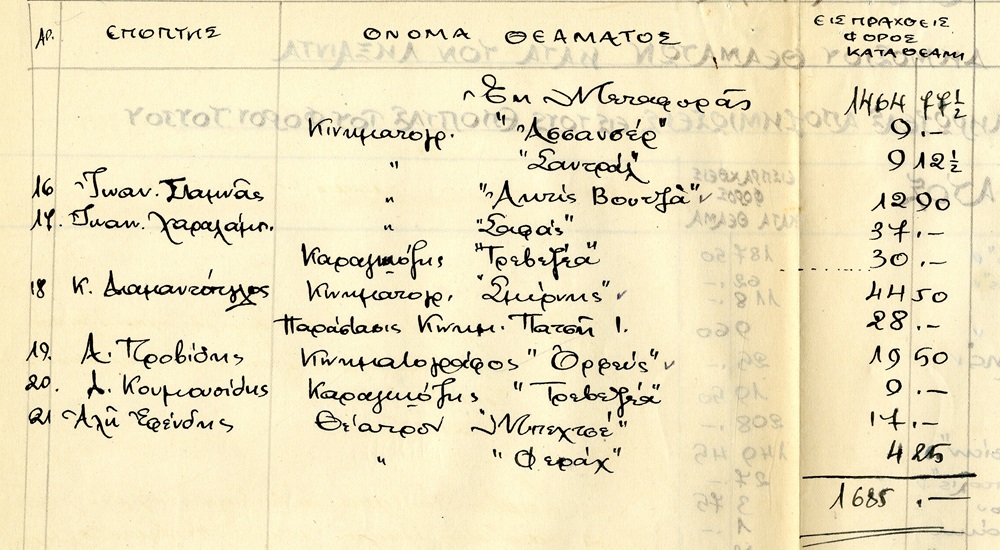
Documents 3-4. List of the tax collected on public spectacles for the month of June of the year 1922. Archives of the Directorate of Finance of the High Commission in Smyrna, Central Service-General State Archives
At the same time, performances were organized for men at the front or for “beneficial” purposes, so the Directorate of Finance allowed performances to be held without collecting the tax on public spectacles. Thus, thanks to the assurance of the Consul of Persia, the operetta “Arshin Mal Alan” was allowed to be performed on June 22, 1922 at the Ottoman cinema Ergad-Pazar without paying tax, since the proceeds would be used for the benefit of the needy Persians. In the attached program of the show it is noted that there will be a separate afternoon performance “for the ladies”
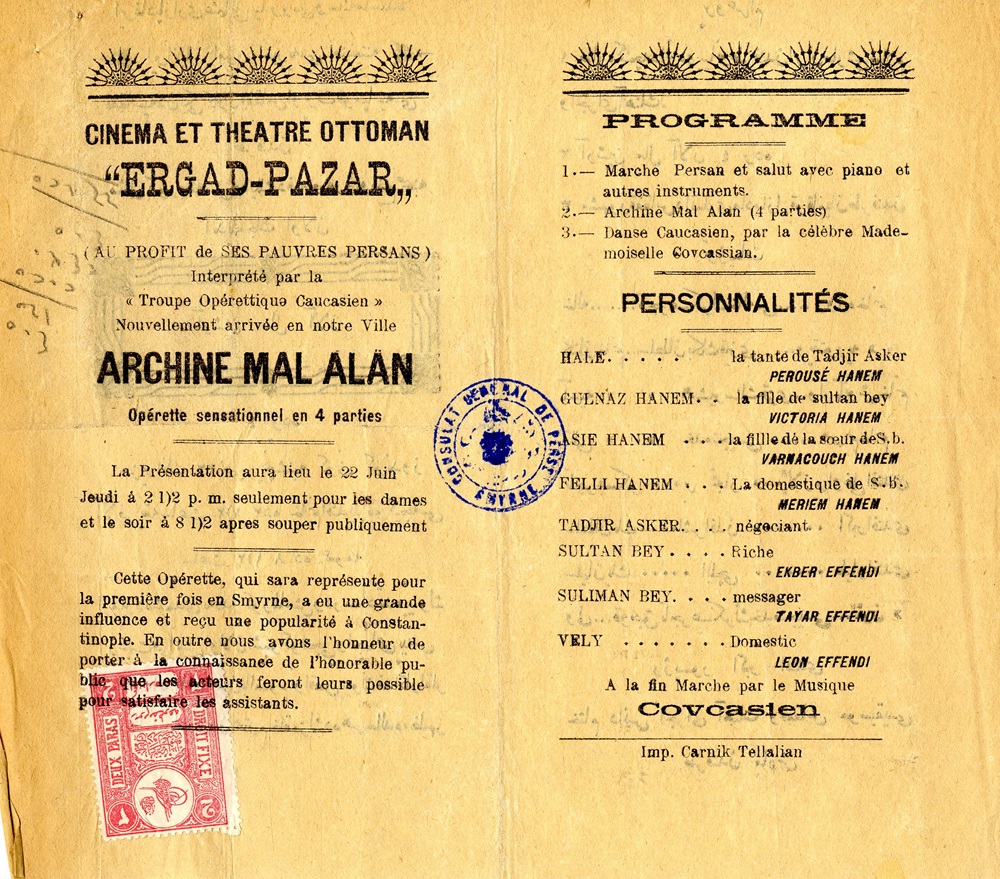
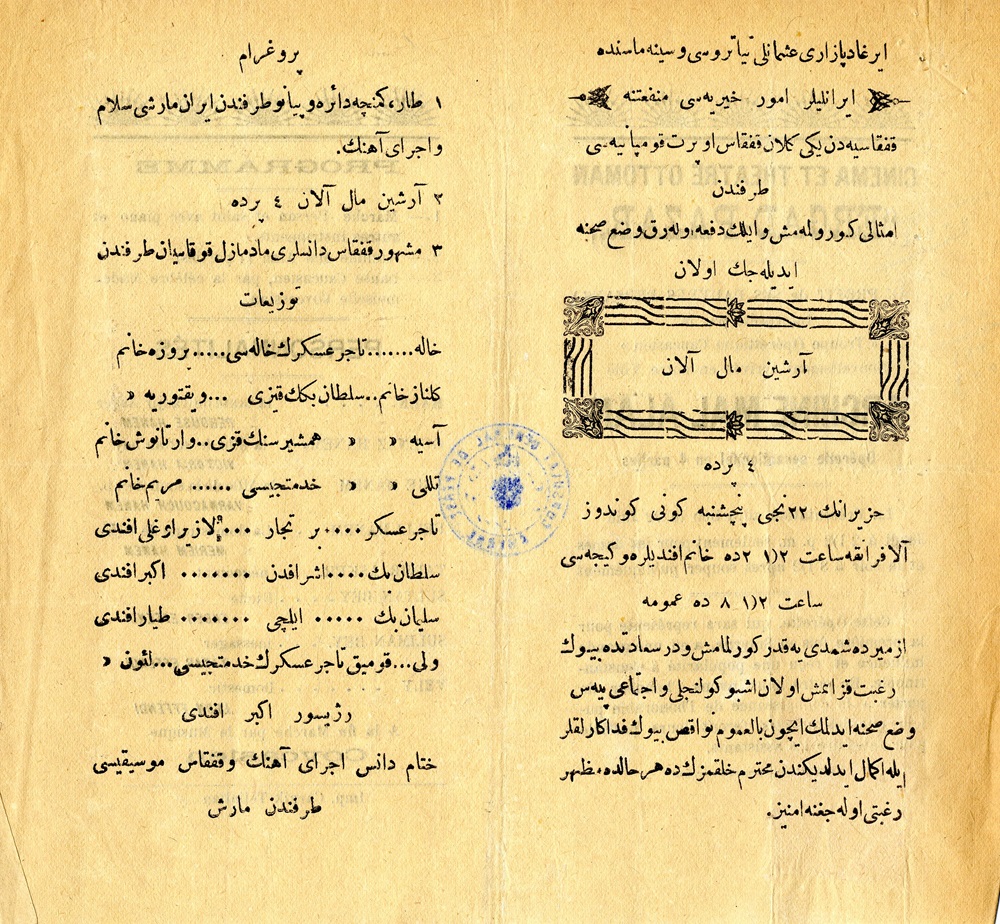
Documents 5-6. Programme of a performance in the cinema Ergad-Pazar for the benefit of poor Persians. Archives of the Financial Directorate of the High Commission in Smyrna, Central Service, General State Archives
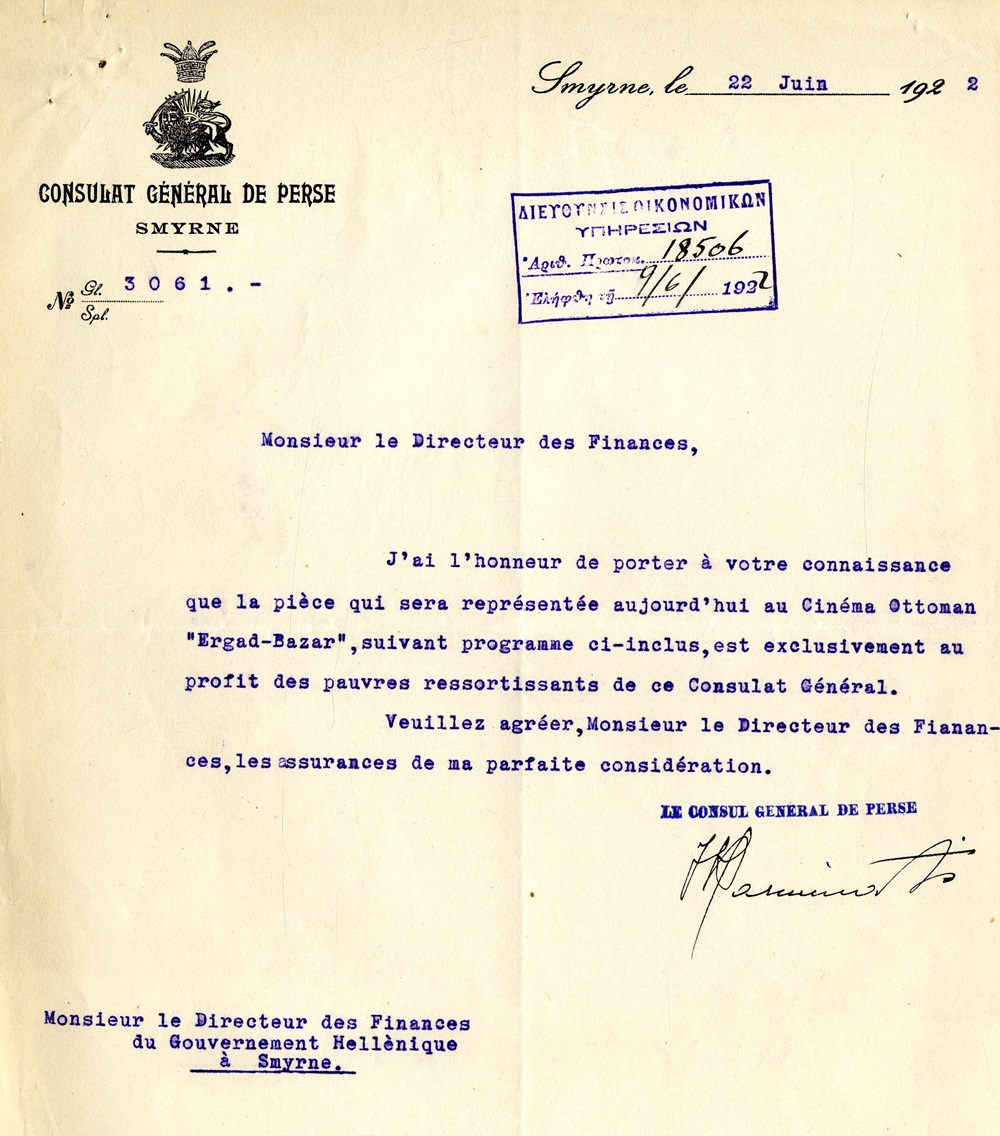
Document 7. Certificate of the Persian Consulate on the charitable performance, June 1922. Archive of the Financial Directorate of the High Commission in Smyrna, Central Service, General State Archives
The issue of collecting this tax presented several difficulties for supervisors, who had to be present at the theater when it opened, leaving their jobs to other public services to monitor that all tickets sold were sealed. There were many cases where stamped tickets were not enough and the Fund agreed to collect tax retrospectively on tickets that had been counted on the spot by the supervisors.
These difficulties are set out in his report by the General Supervisor of Public Spectacles Dimitrios Pomonis. It admits that ‘the supervision carried out over cinemas under [his] jurisdiction is not exactly that’ required by the orders, since, among other things, the theatre directors claim to issue free tickets to members of their families, the number of which ‘varies from time to time’, a facility which was permitted ‘in order to avoid incidents’. The tax receipts also depended on the supervisors’ compensation, giving them an extra incentive to diligently control ticket sales.
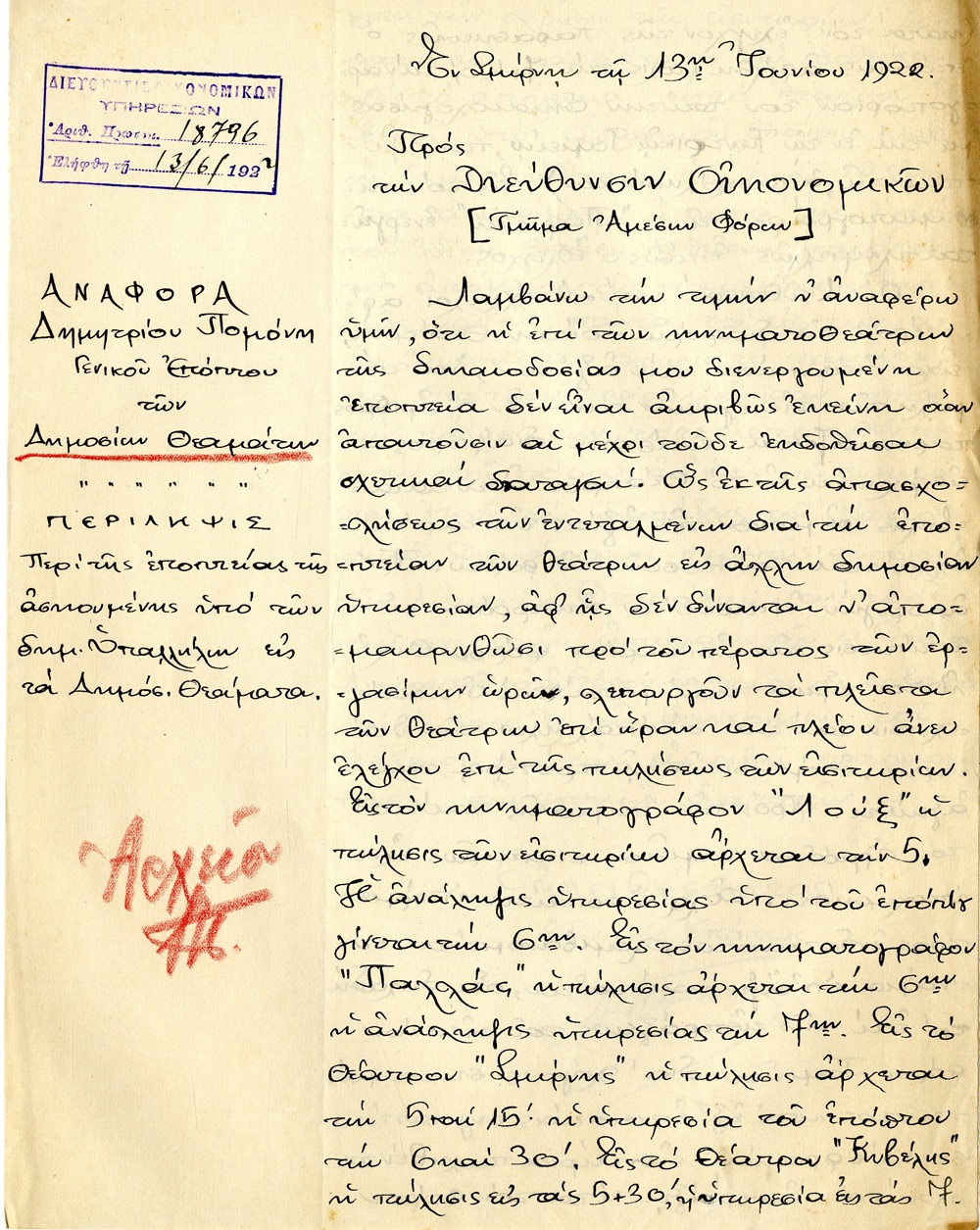
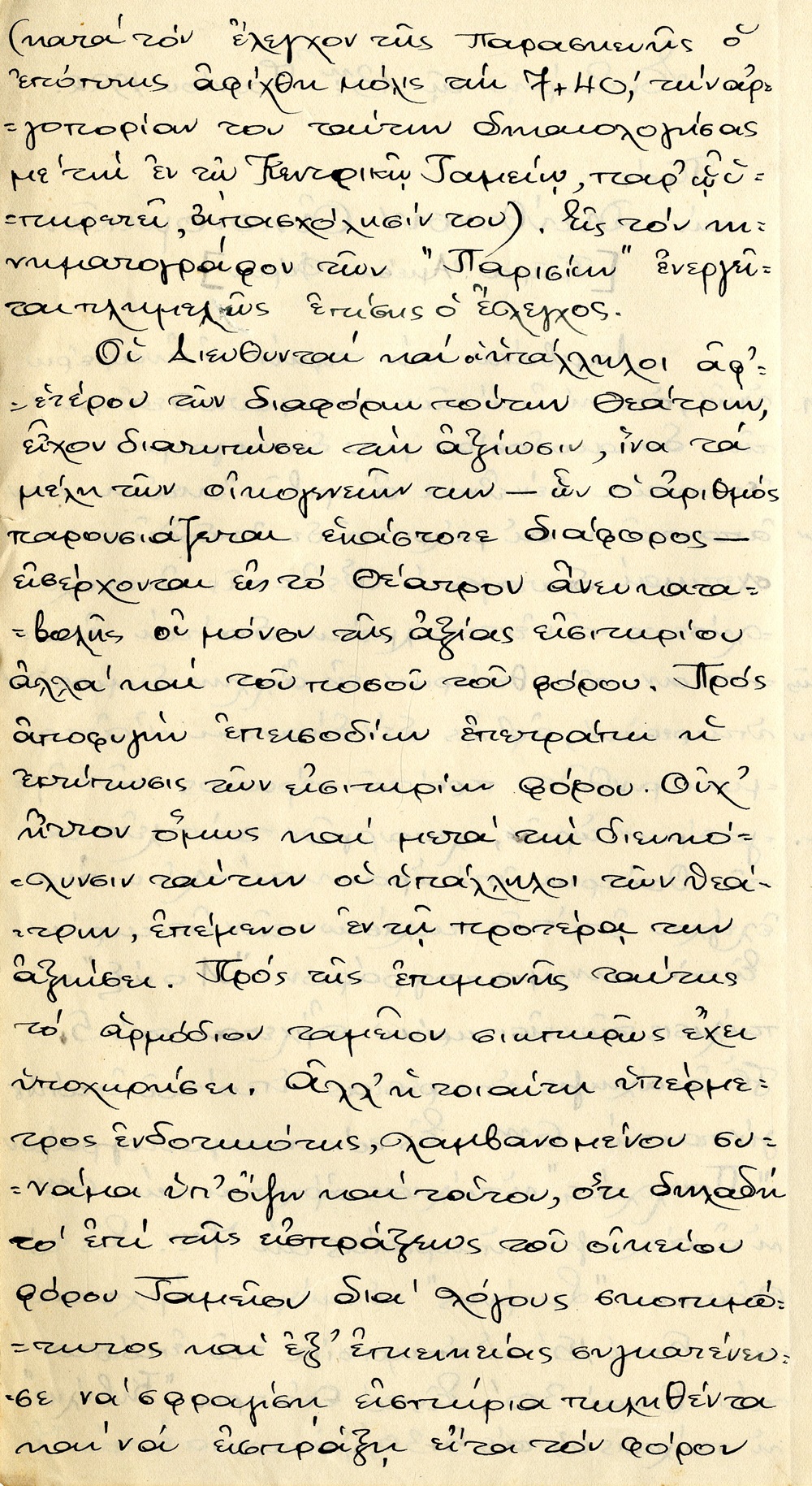
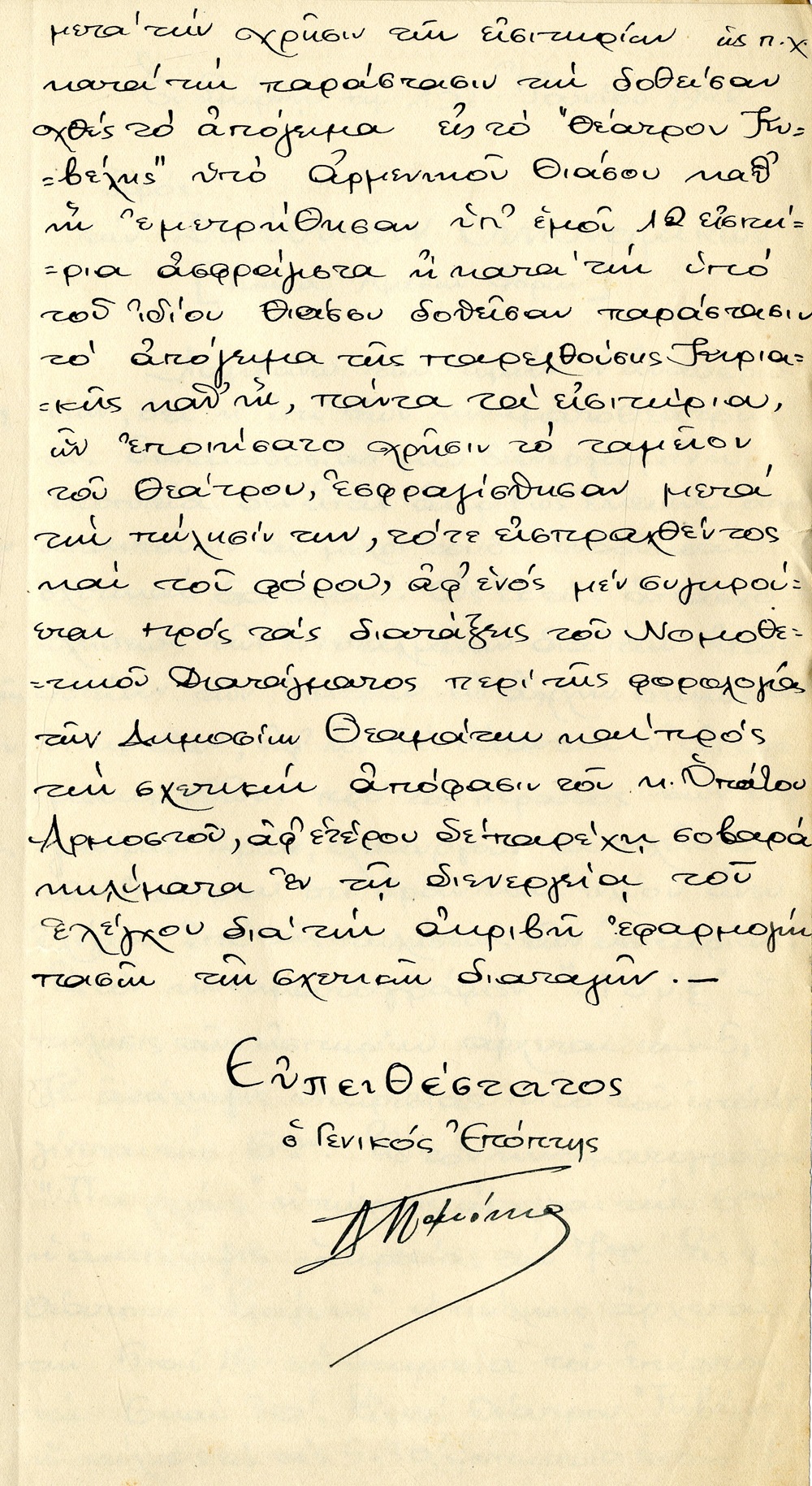
Documents 8-10. Report of the General Supervisor of Public Theatres, June 1922. Archives of the Financial Directorate of the High Commission in Smyrna, Central Service, General State Archives
In August 1922, theatre receipts were declining, as the audience had thinned, as Chrysothemis Stamatopoulou-Vasilakou informs us in the 1922 issue of the magazine Charter. One of the last plays to be performed at the Kyveli Theatre, on August 21, Verdi’s Aida. With its slave heroine, the work was considered symbolic for the fate of Smyrna and Asia Minor Hellenism.


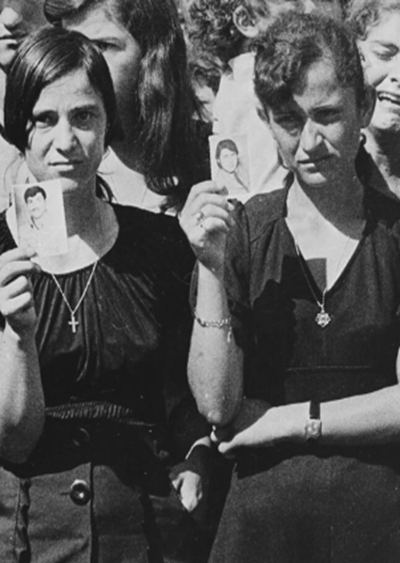
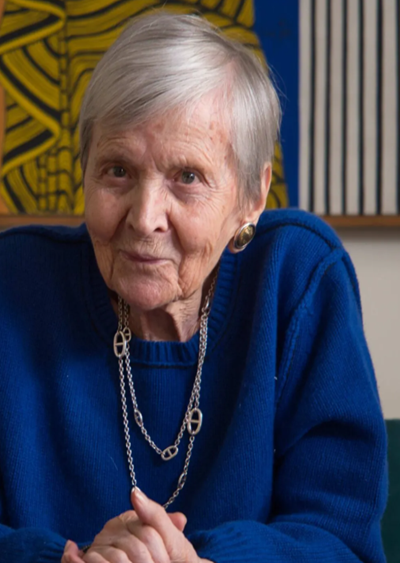
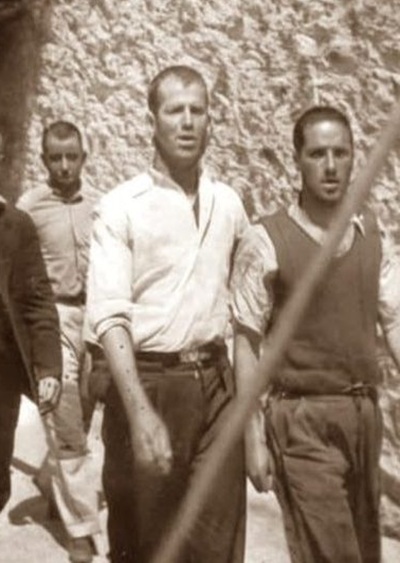


Leave A Comment